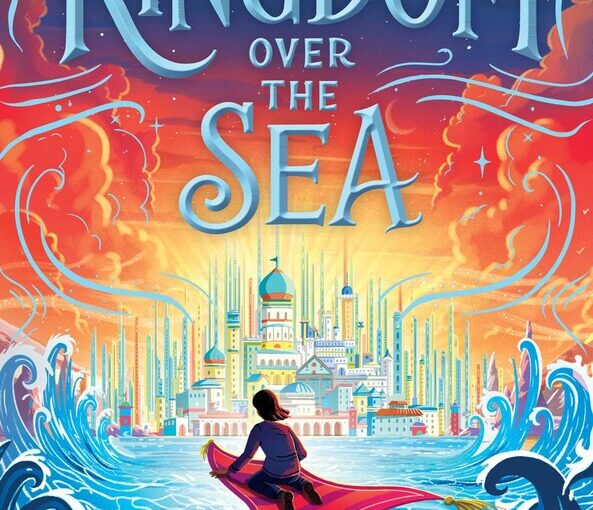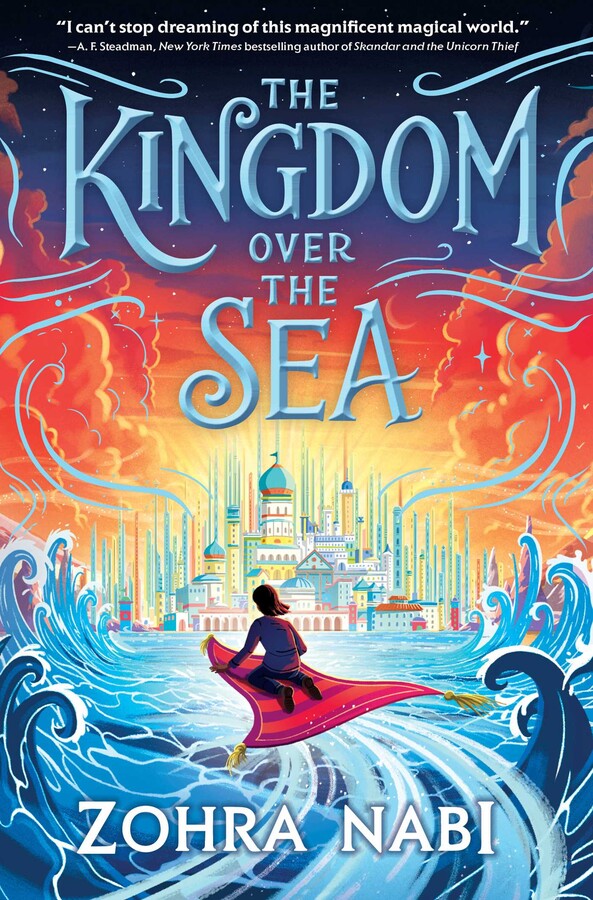Stop me if you’ve heard this before. A young girl’s parents have mysteriously disappeared and are presumed deceased. This youth mourns their absence and is trying to figure out the meaning behind the object or writings that she’s worshipped since they’ve been gone. Suddenly a porthole, new person in town, or traumatic event happens that leads our protagonist to a far-flung world where she discovers new things, realizes that she has powers beyond her imagination and just might be able to see her family again. This is a trope that’s running rampant through children’s literature now. Actually, one could say that it’s been a common theme for a long time. However, what was a theme, is now a de facto, almost mandatory synopsis in books that are in my review queue. So, how does The Kingdom Over the Sea fit in relative to this landscape?
When I started reading Kingdom Over the Sea I was more than a bit wary. Yara is a twelve-year-old girl whose mother died and has left her a bizarre note. The note said that she had to travel far from home, to a place that was not on any map, where she was to help the people who lived there. It’s a matter of life or death, and perhaps she might discover what happened to her mother in the process.
What was surprising about Kingdom Over the Sea is that it wears this trope as if it were a Spice Girl’s robe, punches all of the boxes exactly where they should be marked, but is still an entertaining book. So, if this is the takeaway from a middle-aged book critic, then those who are in the target audience will really enjoy the book.
For us, Kingdom Over the Sea succeeded because it brought back some ideas and devices from Aladdin, but not the annoying ones. Yara’s ancient homeland, the one that she never knew existed, was a place of sorceresses, magic, chemists (but not the Breaking Bad kind), and mystical elements that one would associate with them.
Early in the book she goes to the port where she meets the Ferryman, a stoic, hulk of a dude who sets up an undercurrent for the book’s tone. He’s a cold man who doesn’t care too much about Yara, but is clear that he’s responsible for her during their trip. It’s a short trip to Zehaira, but had his presentation been different it would’ve altered the attitude of the book.
The other big aspect of Kingdom that made the book sail above its potentially low expectations is Yara’s personality. She’s brimming with a confident energy that borders on being too cocky at points but is able to reign it back when she realizes that things aren’t going her way. Even when that happens, she does it in a smart manner that’s duplicitous and conniving, even though she’s doing everything for the greater good of her homeland.
Surprisingly, Kingdom Over the Sea also manages to tie up the story without it being an obvious cliffhanger. At about two chapters before the final pages, readers aren’t sure how, or if the story can be soundly resolved. The conclusion did feel a bit rushed and implausible, plus the ultimate solution was obvious to readers who have read books similar to this. However, you expect The Kingdom Over the Sea to be worse than it is.
It’s akin to critics saying that GOGT3 is the best Marvel movie since Endgame. Is it a commentary about the overall lack of enjoyment that they’ve had with the product between those two goalposts? Had fewer books come out with a plot similar to Kingdom Over the Sea would readers have enjoyed it more? The answer to both of those is probably yes, but as it sits the book is an easygoing, pleasant read that’ll hammer home to those who are in fourth through seventh grade.
The Kingdom Over the Sea is by Zohra Nabi and is available on Margaret K. McElderry Books, an imprint of Simon & Schuster.
There are affiliate links in this post.






 Facebook
Facebook Twitter
Twitter Flickr
Flickr GooglePlus
GooglePlus Youtube
Youtube